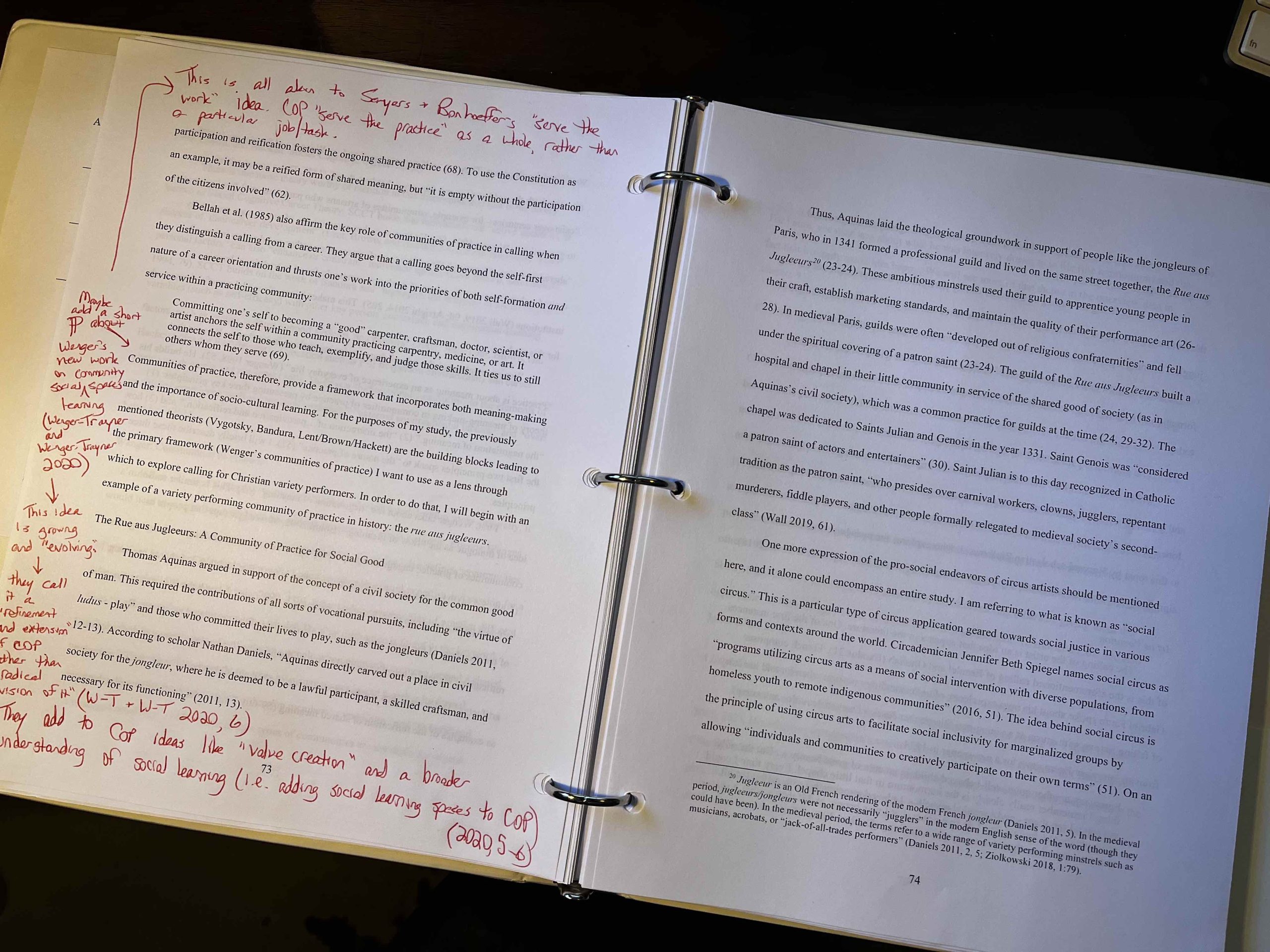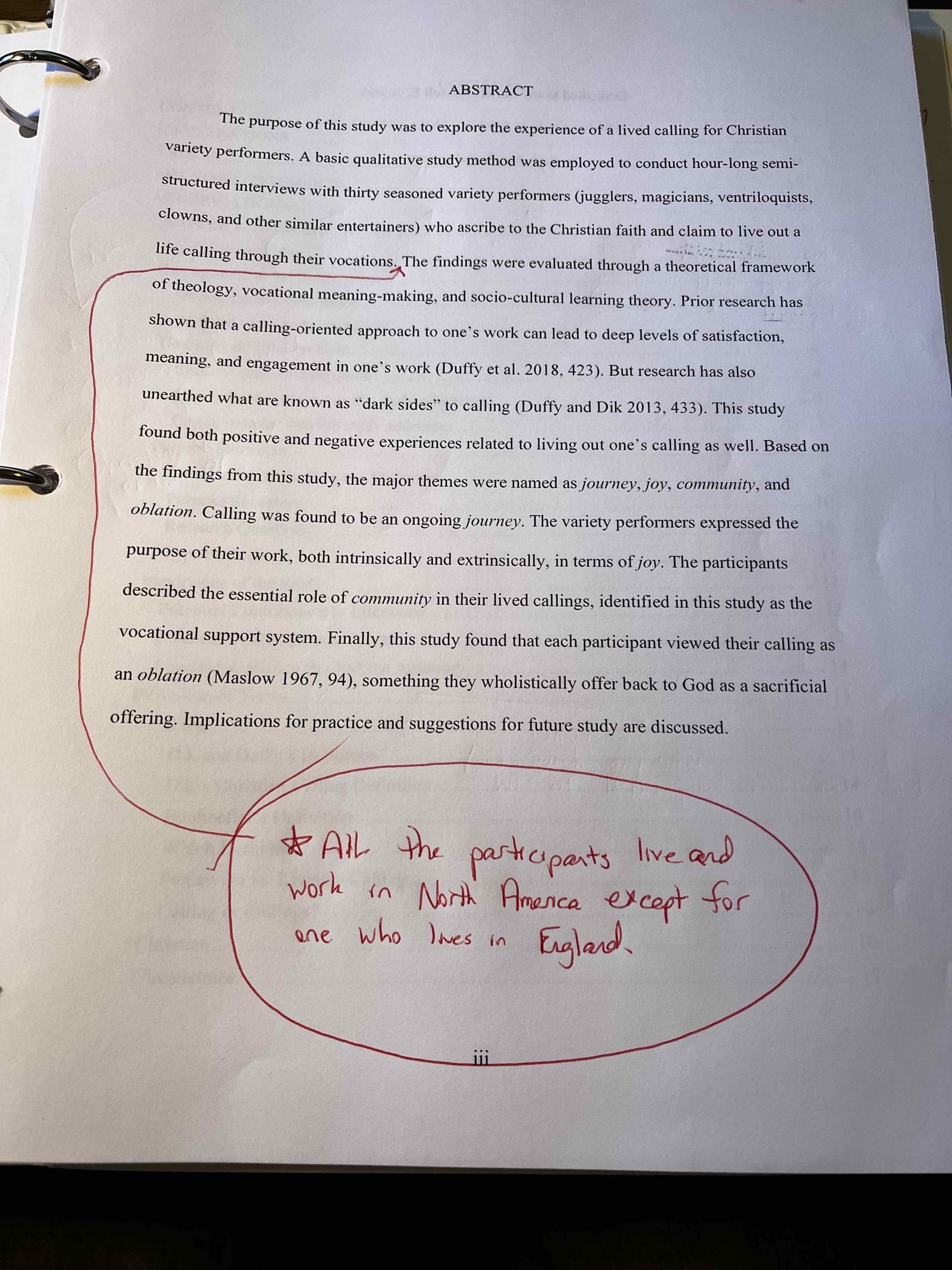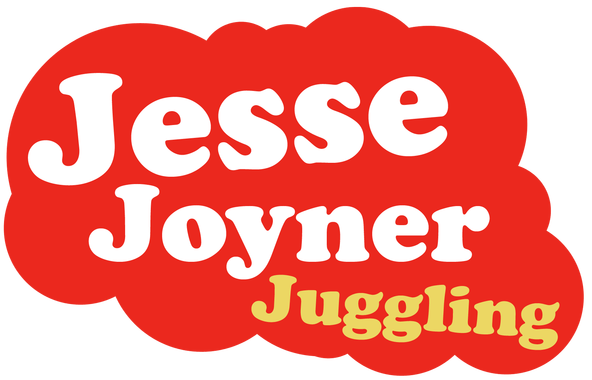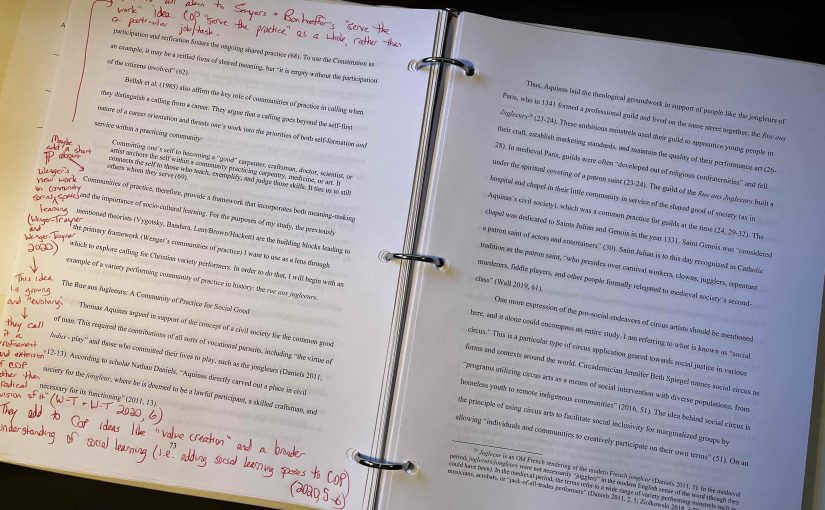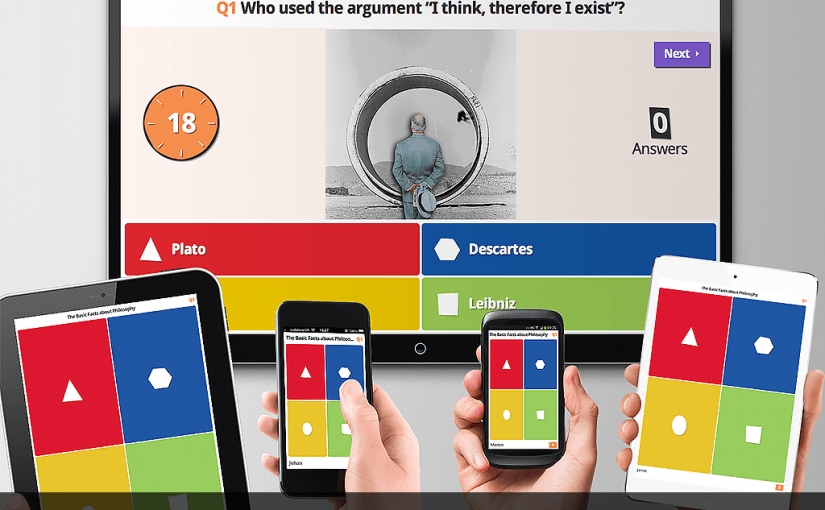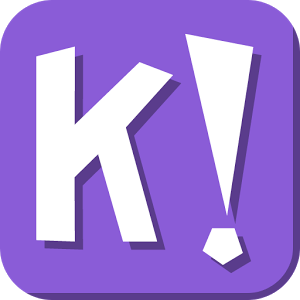My PhD dissertation will be available to the public very soon!
I am so excited to share that my full 274-page PhD dissertation will be available (for free) to the public very soon. Stay tuned for the details. The title is “Holy Fools”: Exploring the Journey of Calling for Christian Variety Performers.
I didn’t know this ahead of time, but when I went to upload my dissertation to the academic database (ProQuest) through my library, I was able to choose whether I wanted my dissertation to be made public or kept behind a paywall.
The paywall option means my dissertation would have been available only to people with academic institution access (certain educators and students) unless they paid to see my dissertation (which I think would cost like $20 or $30 just to see it).
In my own research journey, I ran into such paywalls when looking for sources. I was blessed to have institutional access through my library, so I could request pretty much anything and get anything. But it was nice to find open source research out in the wild because it meant I was able to download the PDF instantly without making a library request for it. Of course there is plenty of crap out there for free on the internet, but there are also some very reliable and useful sources available for free out there as well. One skill in research is to be able to tell the difference.
There are many people around the world who do not have such access to academic literature and would benefit from such access. I myself was thrilled to have free access to Harvard scholar Jan Ziolkowski’s six-volume The Juggler of Notre Dame research for my dissertation. He made all six volumes free online through Open Book Publishers. You can choose to purchase the physical copies. But the PDFs are all freely available online.
I was inspired by the way Ziolkowski (and others) offered their research online without a paywall. I’ve heard that academic research/journals is a big-money industry that does not always look out first for the authors and researchers.
So I chose the open source option on ProQuest. It meant that I gave up any potential royalties I could earn from ProQuest had I chosen the paywall option. I want my work to be available to as many people as possible for as long as possible. I worked hard so that my work could be of service to the world.
In all honestly, probably only my Mom and two other random humans out there in the world would pay for my dissertation, so why not disseminate it far and wide!? Call me a fool for doing so, but see my dissertation for more on that 🙂
Here is a little sneak peak of my editing process (and the abstract if you’re interested). I’ve been making the final touches for the past few weeks. But it is now in the hands of my library. Once they approve the formatting, it should go live soon thereafter. I can’t wait to share it with you!
